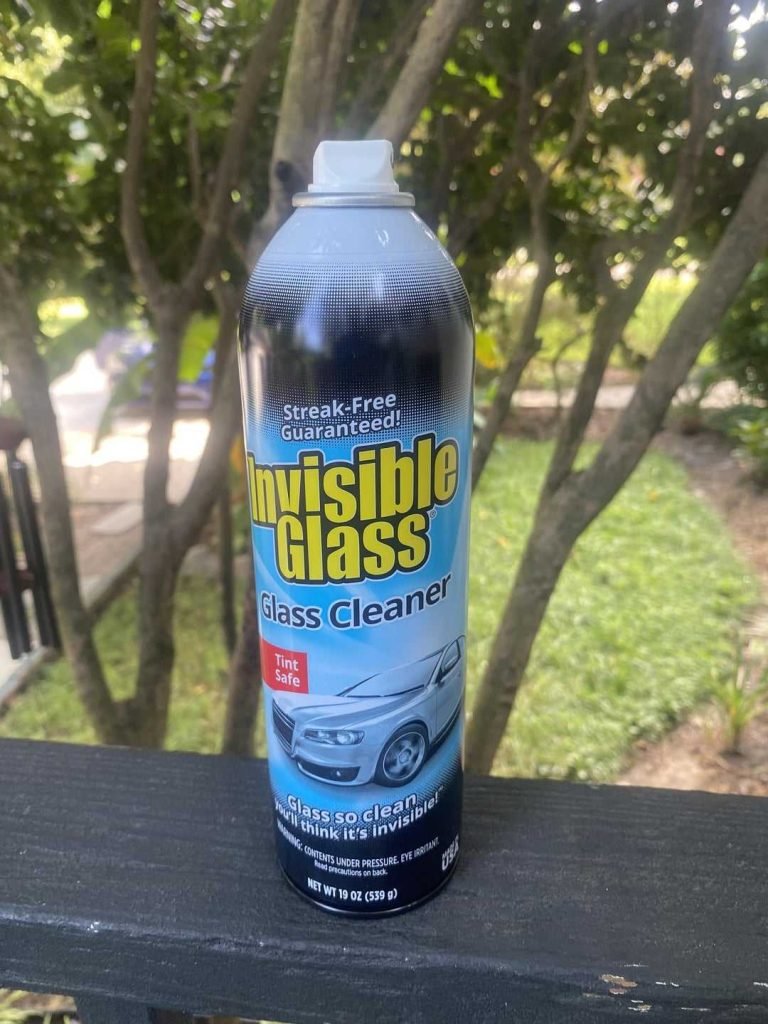Windex might seem like a go-to for sparkling windows, but is it truly better than dedicated car glass cleaners? The answer isn’t straightforward—while Windex is excellent for household glass, specialized car cleaners often outperform it on automotive surfaces.
In short, Windex works well for home windows, but for the best results on your car’s glass, a dedicated car glass cleaner is usually more effective. Car-specific formulas are designed to handle stubborn grime, grease, and stubborn residues without damaging the tint or coating.
When it comes to cleaning your car’s glass, choosing the right product can make all the difference. Many car owners wonder whether a household staple like Windex can double as a car glass cleaner or if they should stick to products designed specifically for vehicles. The answer depends on your priorities—convenience, cost, or optimal clarity. While Windex offers quick and easy cleaning for household windows, car glass cleaners are formulated to tackle the unique challenges of automotive surfaces, ensuring a clearer, streak-free finish that lasts longer.
Is Windex better than car glass cleaner?
Understanding the Basics of Glass Cleaners
Clean windows and windshields make driving safer and homes brighter. Both Windex and car glass cleaners are popular choices, but they are formulated differently. To decide which is better, it helps to understand what each product offers and how they perform.
What is Windex?
Windex is a household glass cleaner known for its streak-free shine and quick drying time. It contains ammonia, which helps cut through dirt, grease, and grime on various surfaces. Windex is versatile and often used on windows, mirrors, and glass furniture.
What is Car Glass Cleaner?
Car glass cleaners are specially formulated for automotive use. They are designed to remove bugs, road grime, and stubborn residues from windshields and windows. These cleaners often include ingredients that prevent fogging and help repel water for better visibility while driving.
Key Differences Between Windex and Car Glass Cleaners
While both products aim to clean glass, their formulas and intended uses differ significantly. Knowing these differences can help determine which product is more suitable for your needs.
Formulation and Ingredients
- Windex typically contains ammonia, which provides streak-free clarity but can be harsh on some surfaces.
- Car glass cleaners often exclude ammonia to prevent damage to tinted windows and avoid strong chemical fumes inside the vehicle.
Application Areas
- Windex is great for household glass, mirrors, and even some plastic surfaces.
- Car glass cleaners are specifically designed for automotive glass and tougher grime like bugs and road salts.
Performance in Different Conditions
Car glass cleaners are formulated to withstand outdoor conditions and resist rain and snow. Windex, while excellent indoors, may not perform as well in these harsher environments.
Effectiveness in Cleaning and Streak Prevention
One of the main concerns with glass cleaners is their ability to clean thoroughly without leaving streaks or residues. Here’s a comparison based on real-world use.
Windex Performance
Windex is praised for leaving glass streak-free when used correctly. Its fast-drying formula helps avoid smudges and water spots. However, some users find that Windex can leave a film if not wiped properly.
Car Glass Cleaner Performance
Car glass cleaners excel at removing stubborn dirt and bugs. Many contain special agents that help repel water and prevent streaks on the windshield during driving. Some formulas require a specific technique for the best results.
Safety Considerations and Surface Compatibility
Safety is important when choosing a glass cleaner, especially around children or pets. Compatibility with different surfaces is another key factor.
Ammonia Content
Windex contains ammonia, which can be harsh on tinted windows or plastic surfaces. It may cause discoloration or damage if not used carefully.
Car Glass Cleaner Ingredients
Most automotive glass cleaners are ammonia-free, making them safer for tinted windows and interior plastics. They are also less likely to emit strong fumes, making them more suitable for enclosed spaces like garages.
Cost and Availability
Price and ease of access matter when selecting a cleaning product.
Windex Cost and Availability
Windex is widely available in supermarkets, hardware stores, and online. It is generally affordable, often sold in large bottles suitable for indoor use.
Car Glass Cleaner Cost and Availability
Automotive-specific glass cleaners can vary in price, with some premium formulas costing more. They are often available at auto parts stores and online, sometimes in smaller bottles for concentrated use.
Environmental Impact and Eco-Friendliness
Modern consumers are increasingly concerned about the environment.
Windex and Environmental Concerns
Windex contains chemicals like ammonia and alcohol, which can be harmful if not disposed of properly. However, some brands now offer eco-friendly or ammonia-free versions.
Eco-Friendly Car Glass Cleaners
Many brands produce biodegradable and non-toxic automotive glass cleaners, which are safer for the environment and human health.
Recommendations for Best Use
Choosing the right product depends on specific needs and circumstances.
If Cleaning Inside a Home or Office
Windex is an excellent choice for indoor glass, providing clear, streak-free results quickly. Its quick evaporation is convenient for everyday cleaning.
If Cleaning Car Windshields and Outdoor Windows
Car glass cleaners are better suited for automotive needs, especially to remove bug splatter and road grime. Their water-repelling properties also enhance driving safety.
For Tinted Windows or Sensitive Surfaces
Opt for ammonia-free, car-specific glass cleaners to prevent damage or discoloration.
Additional Tips for Effective Glass Cleaning
Proper technique can make a big difference in the quality of your cleaning results.
Use a Microfiber Cloth
Soft microfiber cloths help lift dirt without scratching the glass and reduce streaks.
Avoid Direct Sunlight
Cleaning in direct sunlight can cause the cleaner to evaporate quickly, leading to streaks. Choose a shaded area whenever possible.
Apply Cleaner Sparingly
Using too much product doesn’t improve cleaning but can leave residues. Spray lightly and wipe thoroughly.
Follow Manufacturer Instructions
Always read and follow the label directions for the best results and safety.
Summary of Pros and Cons
| Windex | Car Glass Cleaner |
|---|---|
| Effective for indoor glass surfaces | Designed for automotive use |
| Quick-drying, streak-free shine | Removes stubborn bugs and grime |
| Contains ammonia, which can be harsh | Usually ammonia-free, safer for tinted windows |
| Widely available and affordable | Specifically formulated for outdoor conditions |
Choosing between Windex and car glass cleaner depends on where and how you plan to use the product. For indoor use and lighter cleaning tasks, Windex offers excellent results. For automotive needs, especially in removing tougher stains and preventing streaks in outdoor conditions, a dedicated car glass cleaner works best. Both products can serve their purposes well when used appropriately, making them valuable in different situations.
Windex vs Sprayaway Glass Cleaner
Frequently Asked Questions
Is Windex effective for cleaning car windows compared to dedicated glass cleaners?
Windex is formulated primarily for household glass surfaces and often works well for car windows. However, dedicated car glass cleaners contain additives that improve performance on automotive surfaces, especially in removing stubborn dirt, grease, or bugs. While Windex can be effective for general cleaning, specialized car glass cleaners may provide a more thorough and streak-free finish, particularly under challenging conditions.
Does Windex leave streaks or residue on vehicle glass surfaces?
Windex may sometimes leave streaks or residue on car glass if not applied properly or if the surface is dirty. Using a microfiber cloth and wiping the glass in a circular motion helps minimize streaks. For best results, some users prefer dedicated car glass cleaners designed to evaporate quickly and leave a clear, spotless finish without streaks or residue.
Can Windex damage the coating on modern automotive glass?
Most modern automotive glass features a special coating that enhances visibility and durability. Windex is generally safe for these coatings if used occasionally. However, frequent use of household cleaners with ammonia or other harsh chemicals could potentially degrade the coating over time. For regular cleaning, it’s advisable to use products formulated specifically for automotive glass to protect these coatings.
Which product is more cost-effective for frequent cleaning of car windows?
Windex is usually less expensive and readily available, making it a cost-effective choice for occasional cleaning. Dedicated car glass cleaners, although slightly more costly, often provide better results and require fewer applications due to their specialized formulas. For regular maintenance, investing in a good-quality car glass cleaner can save time and effort in achieving a clear, streak-free finish.
Are there any environmental considerations when choosing between Windex and automotive glass cleaners?
Windex contains chemicals like ammonia that can be harmful to the environment if not disposed of properly. Many dedicated automotive glass cleaners are formulated to be more environmentally friendly, often featuring biodegradable ingredients. If environmental impact is a concern, look for products labeled as eco-friendly or biodegradable, and consider reducing the frequency of cleaning with stronger chemical cleaners.
Final Thoughts
Windex is designed primarily for household windows, offering quick and streak-free results. Car glass cleaners are formulated to handle tougher grime, insects, and road dirt more effectively.
While Windex can work in a pinch, it may not provide the same clarity and durability as specialized car glass cleaners.
Is Windex better than car glass cleaner? The answer depends on your needs. For regular household windows, Windex excels, but for your vehicle, a dedicated car glass cleaner gets the job done best.
- How To Fix Laminated Windshield Chip Effectively - October 29, 2025
- How To Repair Laminated Glass Crack Effectively - October 29, 2025
- How To Clean Laminated Glass Properly For Sparkling Results - October 29, 2025



